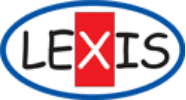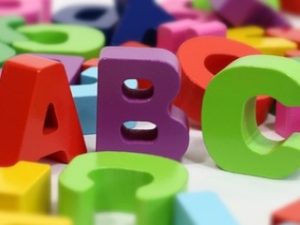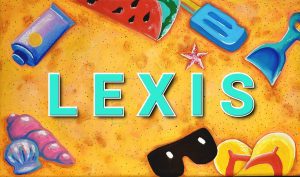英語プリスクールと幼稚園の台頭と卒園後の児童の現状について 英語力 The Rise of English International Preschools and Kindergartens and What Happens To English Ability After Students Graduate
- 帰国子女と国際的な幼稚園・保育園の生徒の違いは何でしょうか?
- バイリンガル幼児におすすめの英語学習アプリ:日本以外の選択肢も紹介
- 国際幼稚園や保育園の保護者にとって、真の問題は「英語教育はどの程度必要なのか?」
- 英語能力を正確に測定する方法 - レクシスの評価システムについて
- インターナショナルスクール幼稚園の英語力チェック
- 国際幼稚園や保育園の卒業後、親たちはどのようなことを考える必要があるでしょうか?
- 日本人生徒の英語力低下について:保育園や幼稚園からの英語教育の重要性とは?
- The Rise of English International Preschools and Kindergartens and What Happens To English Ability After Students Graduate
- What is the difference between returnee students and international school students?
- A real question for International Kindergarten and preschool parents. How much English is enough?
- What do parents of international preschool and international kindergartens need to think about after graduating?

日本には新しい英語話者の世代が生まれました。国際的なプリスクールや幼稚園にアクセスできる3歳、4歳、5歳の子供たちです。私が娘のためにプリスクールを探していた時に、吉祥寺と三鷹の地域でそれをすぐに気づきました。私は⭕️⭕️⭕️⭕️のオープンキャンパスに実際に行って、娘のための学校やカリキュラムについて学ぶための面談を予約しました。しかし、彼らは私を見るとすぐに、私が間違った場所にいると言いました。彼らは教師の面接は月曜日であり、木曜日ではないと私に言いました。私は15年のベテラン教師であり、彼らのウェブキャンペーンから来た彼らの典型的な「教育経験不要」の外国人ではないことを彼らに伝えました。私がその日そこにいた目的は、⭕️⭕️⭕️⭕️または他の国際的なプリスクールや幼稚園に娘を送る場合に、彼らが教える実際の内容を学ぶことでした。それでも、少し見回した後、私たち家族は⭕️⭕️⭕️⭕️に反対することに決めました。近所の他の多くの学校も、デュアルランゲージシステム、言語浸漬、または「グローバル」環境を約束しています。それにもかかわらず、私たちは実際には、私たちの家族に非常に良く合っている標準的な日本のプリスクールを使うことに決めました。
私の状況では、娘と家では英語を話しています。私はそれを一貫して実践しています。娘が何かを欲しがるときには、彼女の日本語の質問を英語に翻訳し、それを英語で繰り返すようにしています。英語を母国語として話すことができるという利点があります。そして、娘は「パパがなぜ英語を話しているのか」とは決して質問しません。彼女は私がアメリカ出身であることを知っていて、私が彼女と一緒に英語を使うことを期待しています。そのため、私たち家族は日常的なインターナショナルスクールシステムを避けることができ、代わりに週に1回の国際プログラム、私たちの場合はLexisを利用して非常に幸せです。

私のような人は皆そうではありません。英語の幼稚園はこの地域にたくさんあります。さらに、多くの子供たちは今日ではYouTube、Netflix、スマートフォン、タブレットにアクセスできています。これらの子供たちは、学校で週2日、週3日、週5日と英語を学んだ後、帰宅してからはこれまで以上に英語コンテンツを見る可能性があります。これらの子供たちにとっての機会は本当に素晴らしいです。私は留学生(海外で生活してから日本に帰国した生徒)の教師であり、優れた英語話者の子供たちに多くの接触を持っています。Lexisは、実際にこれらの生徒のためのコースを開発しました。最近では、新しいタイプの生徒、国際幼稚園生にも留学生コースを提供するようになりました。しかし、これらの帰国子女とは異なり、家族全員が外国に移住して英語に360度さらされるのではなく、国際幼稚園生は主に制御された環境で英語を学びます。
帰国子女と国際的な幼稚園・保育園の生徒の違いは何でしょうか?
最も顕著な違いは、親の英語能力の欠如です。帰国子女の家庭では、母親、父親、または両親が英語圏に入国するとともに帰化しており、子供よりも英語が苦手かもしれませんが、海外での生活経験を持っています。国際的な幼稚園や保育園の生徒は、学校でしか英語を話さず、家に帰ってくると、誰も英語を話さないか、あるいは英語を話す必要がない環境にいます。彼らの親は国際的な人々か地元の人々かもしれませんが、いずれにしても、子供たちの周りで英語を使用しているわけではありません。
バイリンガル幼児におすすめの英語学習アプリ:日本以外の選択肢も紹介
国際的な幼稚園児たちは、このような状況に直面しています。彼らは学校で英語を学びますが、家に帰ると英語を話す必要のある人がいないため、英語に触れる機会が少なくなってしまいます。そのため、親たちは、バイリンガル教育を約束するアプリやソフトウェアを購入することがあります。日本の家族をターゲットにしたアプリやプログラムが多数あり、これらの大企業は、日本語と英語の両方を聞いてバイリンガルになることを約束しています。日本は島国でありますが、インターネットを通じて世界中がつながっています。私は家族に対して、日本以外のアプリを探してみることを強くお勧めします。4歳の子供でも日本語と英語を翻訳する必要はありません。アメリカのパブリック・ブロードキャスティング・サービス(PBS)が制作した素晴らしい教育アプリ「PBS kids application for iPad」が世界中でダウンロード可能です。そのほかにも、無料で利用できる素晴らしいアプリがたくさんあります。これらのアプリは、4年契約を結ぶ必要もなく、子供たちが学ぶことができます。また、テレビ番組やストリーミングサービスもエンターテインメントを提供するだけでなく、教育的な要素も含まれていることがあります。ただ、学校のように段階的なカリキュラムではなく、単に楽しむためにデザインされていることを理解しておく必要があります。
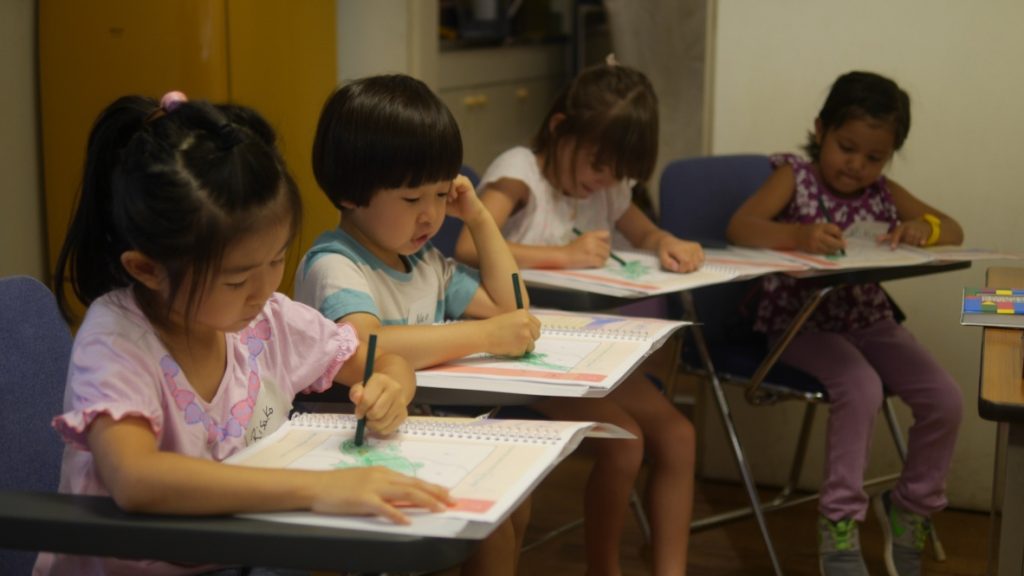
国際幼稚園や保育園の保護者にとって、真の問題は「英語教育はどの程度必要なのか?」
ということです。十分な量か、不十分な量か、過剰な量か、自分の子どもに英語学習を強制しているのではないか、英検などのテストが有効な指標となるのか、もっと勉強するように子どもたちを奨励する必要があるのか、どのレベルで学習すればよいのか?帰国子女の親は、海外での体験により、これらのことに関してより理解があります。彼らは、海外での友人や同僚のレベルを見て、自分の子供がどの程度努力し、英語を自然に使うようになるまで適応したかを目の当たりにしました。 一方、国際幼稚園や保育園の保護者は、子どもたちが日本で進歩するために、あらゆる努力を尽くす必要があります。日本の典型的な生徒よりも英語能力がずっと上回っているため、実際の国際的な英語力に関して、どの程度のレベルにあるかを知るのは難しいです。国際幼稚園出身の生徒たちは、日本のレベルを超えていますが、アメリカ、イギリス、オーストラリアなどの同年代の生徒と比較してどうなのでしょうか?
英語能力を正確に測定する方法 - レクシスの評価システムについて
生徒の能力評価には様々なツールが使われています。もちろん、レクシスでも独自の評価システムがあります。私たちは、読み書き、話す、聞くという言語の四つの基本的な能力に加えて、日本の基準、北米の基準、欧州の基準、国際的な標準テストに基づいて、生徒の英語力を評価しています。これらは、生徒を適切なクラスに配置するために教師が理解する必要のある重要な情報です。また、保護者が理解する必要がある重要な情報でもあり、レベルチェック中に保護者と共有します。
インターナショナルスクール幼稚園の英語力チェック
レベルチェックは、レクシスの基盤の一つです。学校のどのクラスにも参加する前に、総合的な能力チェックを受ける必要があります。結果を解釈した後、私たち教師は、上記で言及された多くの質問に対して保護者のサポートができます。国際幼稚園やプリスクールの保護者の場合、レベルチェックは、自分たちの子供がアメリカやカナダの子供たちと比較してどの程度の能力を持っているのかを知る確実な方法です。また、将来海外に渡ることがあれば、素晴らしい情報源になるでしょう。
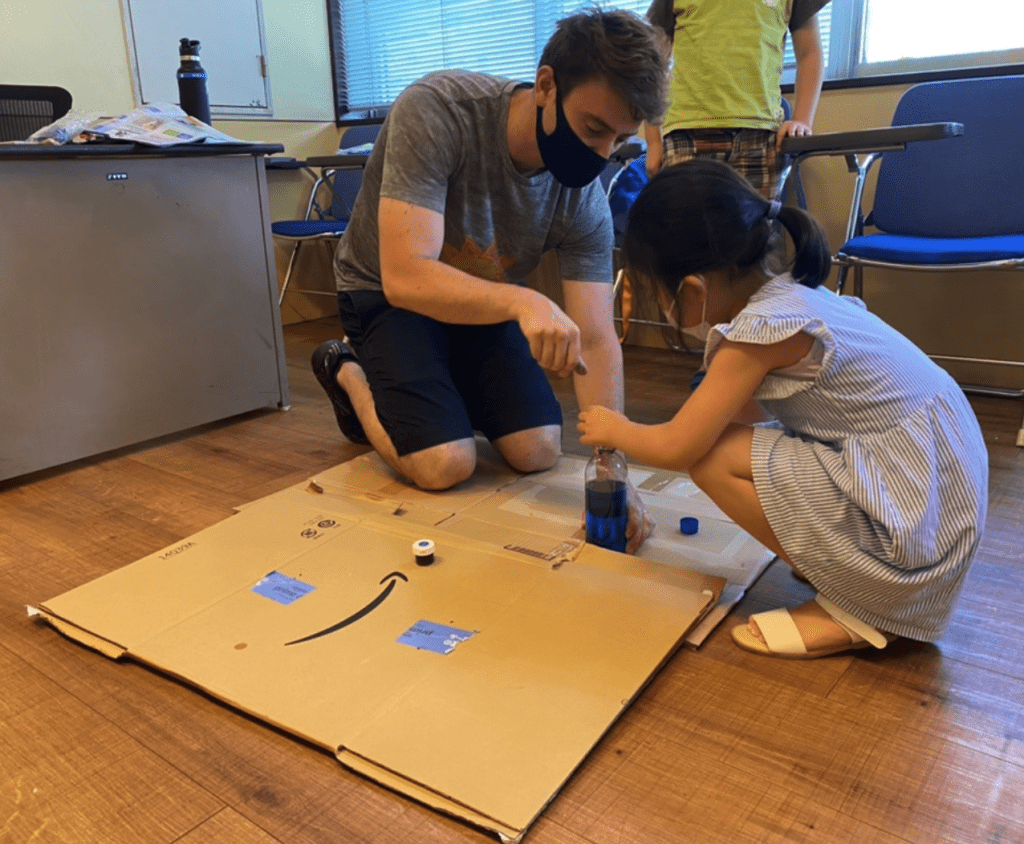
国際幼稚園や保育園の卒業後、親たちはどのようなことを考える必要があるでしょうか?
卒園後はどうでしょうか?国際幼稚園や半国際幼稚園の生徒が、卒園後に英語を継続的に勉強しない場合、通常どのような結果になるのでしょうか? 私が非常に自信を持って答えられるこの問いに対する答えは、きっと多くの保護者を悲しませることになるでしょう。 アメリカ、オーストラリアなどから帰国した生徒たちと同じように、国際幼稚園の生徒たちは、定期的に使わない限り、英語を覚えていられません。 日本には十分な英語刺激がなく、子供たちは英語を維持するために、定期的に英語にさらされる必要があるからです。テレビやアプリは聞く力を助けるかもしれませんが、話す、書く、読む(アウトプット)の面では、娯楽だけでは不十分です。
日本人生徒の英語力低下について:保育園や幼稚園からの英語教育の重要性とは?
私はもう一度繰り返しますが、私は帰国生徒の先生でもありますが、彼らは日本の国際学校の生徒よりも英語を話すことが遥かにできるのですが、幼稚園または保育園に通った日本人生徒は、定期的に英語にさらされて挑戦されない限り、英語を忘れてしまいま。
宿題がかなりある当校には、たまに宿題が難しすぎるという生徒がいます。これらの生徒は中途半端に放棄してしまいます。その同じ家族が2〜3年後に戻ってきて、「再び参加したい」と言うことがあります。心を痛めるのは、その子供が能力を失ってしまったと伝えることです。彼らは能力を失ったのです。2年生で辞めた現在の5年生は、5年生レベルで話していたでしょう。彼らは意見を見つけ、偏見を見つけ、論争に参加することを学んでいるはずです。代わりに、彼らは5年生になってAEIOUを再び学び、"cat" ではなく「キャット」、yesではなく「イエス」と言っています。
同じことは、国際幼稚園に通う児童にも当てはまりました。普通の小学校の子供たちは3年生で英語の歌を歌うことを学びますが、4年生になるとローマ字が教えられ、英語力が残っていた部分が失われ、5年生の英語の授業ではバナナの絵を円で囲むことを学びます。この頃になると、塾は受験用の英語を学ぶように生徒たちにプレッシャーをかけ始めます。生徒が覚えることに猛勉強したら、六年生の終わり頃には試験に合格できるはずです。そして、中学校で英文法を学び、翻訳を通して英語を理解することが求められる地獄が始まります。これこそが悪夢です。このようなサイクルが繰り返される必要はありません!なぜなら、親たちは国際幼稚園にたくさんのお金を払って、子供たちが同じ場所に戻ってくるだけだったら意味がないからです。
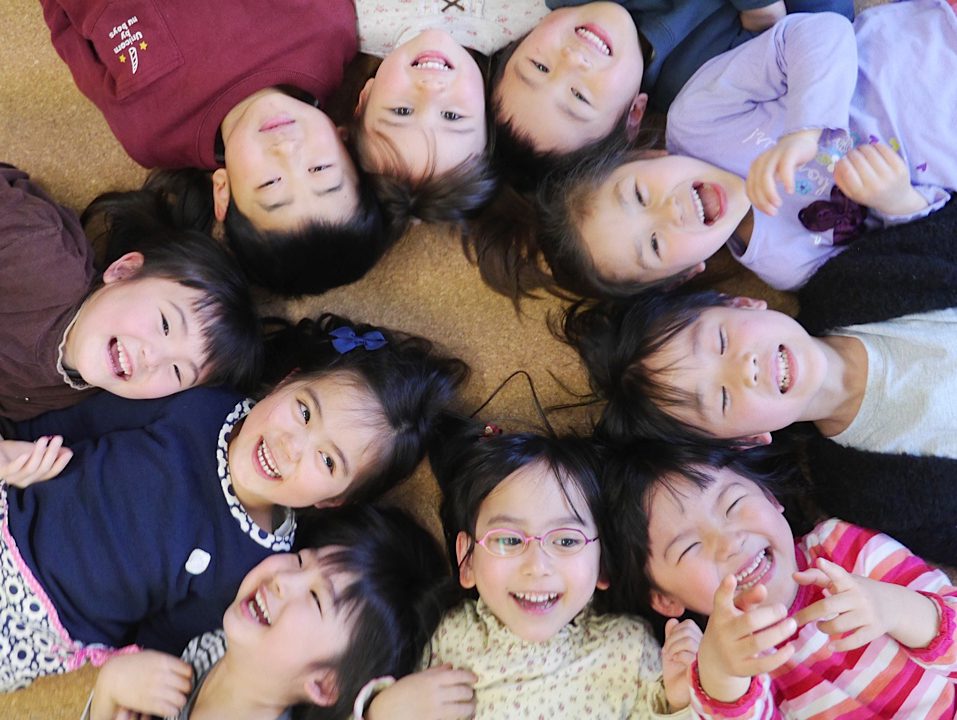
生徒たちは英語の勉強を続ける必要があります。毎週、定期的に学ぶことが重要です。私たちは、レクシスを一週間に一度の場所として、生徒たちが努力し、楽しむことができ、快適で本当に国際的な環境にいることができるように努めています。国際幼稚園や英語幼稚園にお子様を通わせた親御さんへのアドバイスとして、お子様たちは英語の学習の旅をしています。しかし、まだたくさんの作業が残っています。それでも、これらの子供たちは同年代の子供たちよりも先を行っています。もし、お子様を国際レベルで英語を習得させたいのであれば、ぜひレクシスを試してください。私たちは毎日のプログラムを置き換えることはできませんし、約束することもできませんが、他にたくさんのことがある中、週1回のサポートがなければ、お子様は非常に英語の能力を失う可能性が高いです。レクシスでは、北米レベルに適した教育、経験豊富なネイティブの教師、そして日本語と英語の教育の長年のノウハウを約束します。もしレクシスが選択肢にならない場合は、あなたの地域の言語学校を見つけて申し込むことを強くお勧めします。そして、幸運を祈ります。
The Rise of English International Preschools and Kindergartens and What Happens To English Ability After Students Graduate
Japan has a new breed of English speakers. Three, four, and five year old kids, with access to "international" pre schools and kindergartens. In the Kichijoji and Mitaka area, I noticed it right away when searching for a preschool for my daughter. I personally went to a "Dual Language Chain" open campus. I scheduled an appointment to learn about their school and curriculum for my daughter. Sure enough though, when they saw me, they immediately told me I was in the wrong place. They told me that interviews for teachers were on Monday, not Thursday. I informed them that I was a 15 year veteran teacher, not one of their typical "zero teaching experience required" foreigners from their never ending web campaigns. My goal there that day was to learn about the actual content of what they would be teaching my daughter if I did decide to send her to that "dual language chain school" or another international preschool or kindergarten. Anyway, after looking around a bit, our family decided against the "dual language chain school". Many other schools in the neighborhood also offer dual language systems, language immersion, or the promise of a "global" environment. Despite this, we actually decided to use a standard Japanese preschool which worked out very well for our family. By the way, there are some great every day international kindergartens and preschools in the area, so feel free to ask me in person any time!
In my situation, I speak English at home with my daughter. I have been consistent with it. I will translate her Japanese language questions into English and then make her repeat them in English if she wants something. I have that as an advantage as a native speaker of English. Plus, my daughter will never question me as to "Why is daddy speaking English?", she knows I am from the USA, and she has that expectation that I will use English with her. So our family has been able to avoid the daily international school system. Instead we have been very happy using a weekly international program, in our case Lexis, once a week.
Everyone is not like me though. English preschools are kindergartens are all over the area. In addition, many kids these days are raised on access to youtube, Netflix, smartphones, tablets. These children are learning English two, three, even five days a week at their schools and then are coming home and at least have the possibility of watching more English content than ever before. The opportunities for these children really are amazing. As a teacher of returnee students (students who have lived abroad then returned to Japan) I get a lot of exposure to excellent English speaking children. Lexis has actually built a course just for these students. Recently though, we have been opening up our returnee course to a new breed of students, the international kindergarten student. These students are different however. Unlike returnee students, where the entire family moves to a foreign country and exposed to English from 360 degrees, international preschool and kindergarten students only learn English in a mostly controlled environment.
What is the difference between returnee students and international school students?
The most noticeable effect here is the lack of parental English ability. In a returnee family, a mother, father or possibly both parents are naturalized into an English speaking environment. A parent of a returnee may not as good as their child, but they lived the life abroad and got to know life abroad in one way or another. International preschool and kindergarten students learn English only at school, and quite often come home to a home where no one can speak, or more likely, no one needs to speak English on a regular basis. Their parents may be international or local, but either way, they aren't using English at home around their children.
For international pre school students then, this creates a sort of vacuum. Their English words are heard in their school days but are not nourished once they come home from school. To make up for this parents may purchase apps or software that promise more bilingual or English education. There are so many applications (apps) and programs targeting Japanese families. These large companies are promising students to be bilingual by hearing both Japanese and English. Japan may be an island, but the Internet connects us all. I highly encourage families to look for apps from outside of Japan. Children as young as four year old do not need to be translating Japanese into English and vice-versa. The PBS kids application for iPad is a wonderful learning app produced by the American Public Broadcasting Service, which is available for download worldwide. There are so many other great FREE applications that kids can get into, and can study on without having to commit to 4 year contracts etc. TV programs and streaming services will provide entertainment too. They may possibly provide education as well. Unfortunately, it isn't graded or progressive like school, it is simply designed to entertain!
A real question for International Kindergarten and preschool parents. How much English is enough?
Some real worries for international kindergarten and preschool parents are: How much English is enough, how much is not enough, and how much is too much? Am I pressuring my child to study English too much? Are tests like Eiken a good measure? Should I be encouraging my children to study more? Where is the level they SHOULD be at? Returnee parents typically have a better sense of of these things because of their exposure abroad. They will see what their children's friends and peers were like when abroad. They saw the level, they saw their own children work hard to reach that level, acclimatize and become used to using English naturally. For international kindergarten and preschool parents, all progress made will be made in Japan. It's hard to know where your child is in terms of ability, especially in terms of actual international English ability. This is simply because students who have attended international kindergarten are so far ahead of typical Japanese students in terms of English ability. But how about on an international level? Are they comparable to students their own age in the USA, England, Australia, etc?
There are a variety of tools teachers use to evaluate student ability. Of course at Lexis, we have our own evaluation system. We use the four basic pieces of language, reading, writing, speaking, and listening. In addition, we assess students' English ability based on Japanese standards, based on North American standards, European standards and based on international standardized tests. These are all important pieces to understand as teachers so we can place students into appropriate classes. These are also important pieces of information for parents to understand, so can and will share this information with parents during our level checks.
Level checks are a foundation at Lexis. Before anyone can join any class at the school, they are subject to a comprehensive check of abilities. After interpreting the results, we can, as teachers help parents answer many of the questions mentioned above. If you are a parent of a student at an International preschool or kindergarten a level check is a sure fire-way to know your student's ability compared to their American or Canadian counterparts. This is also great information should they ever be headed abroad.
What do parents of international preschool and international kindergartens need to think about after graduating?
What about after graduation though? What is the typical result of an international or semi international kindergarten student when they do not continue with English after graduating kindergarten? This question, which I can answer very confidently, will make parents very sad I'm sure. International kindergarten students, much like returnee students from the USA, Australia, etc, will not remember English if they do not use it regularly. There is simply not enough stimuli in English here in Japan for kids to keep up their English without deliberate exposure to it on a regular basis. TV and apps may help with listening, but as far as output (speaking, writing and reading), entertainment just is not enough.
I will repeat this one more time, and as a teacher of returnee students, who are far more capable of speaking English than their Japanese international school counterparts, Japanese students who went to international school for preschool or kindergarten will forget English if they do not regularly get exposed to it and challenged.
As a school with a decent amount of homework, occasionally Lexis sees some kids who say it is too hard. These students quit. Those same families come back two to three years later and say "we would like to join again." It always breaks my heart to tell the parents their their child has lost their ability. Lost it. Current fifth graders who quit in second grade would have been speaking at the fifth grade level. They would be learning to identify opinion, find bias, and engage in debate. Instead, they come back at fifth grade and have to learn AEIOU all over again and are saying キャット rather than cat. and イエス instead of yes.
This same thing is true of international kindergarten students who go straight into Japanese elementary schools. Kids will learn to sing English songs in 3rd grade, lose the remainder of their English ability in fourth grade when romaji is taught, and learn to circle pictures of bananas for English class time in fifth grade. Around this time cram schools will be pressuring students into learning the test specific English for their entrance exams 受験, and if kids work hard enough at memorization, they should be able to pass the exam by the time they are nearing the end of sixth grade. Then junior high school starts with the hell of learning English grammar in Japanese and using the translation method for students to understand English using Japanese. This is the nightmare. This is what we do not want! We do not need this cycle to repeat! Why did parents pay so much for international preschool and kindergarten just for the children to be back at the same place.
Students have to keep studying English. Every week. I strive to make Lexis the once a week place where students can come, work hard, enjoy themselves, and be in a comfortable and truly international environment. So my advice to parents who have sent their kids to international preschool or kindergarten: they are on their English journey! However, there is plenty of work to be done still, but those children are going to be ahead of their peers. If you'd like them to keep learning English at an international level, please try out Lexis. We cannot replace a daily program, nor do we promise to, but with so many other things going on, your student will very likely lose their English ability without weekly support. What we can promise at Lexis is a North American level appropriate education, experienced native teachers, and years of know-how in both Japanese and English education. If Lexis is not an option for you, I highly recommend you find a local language school in your area and apply. And good luck!
